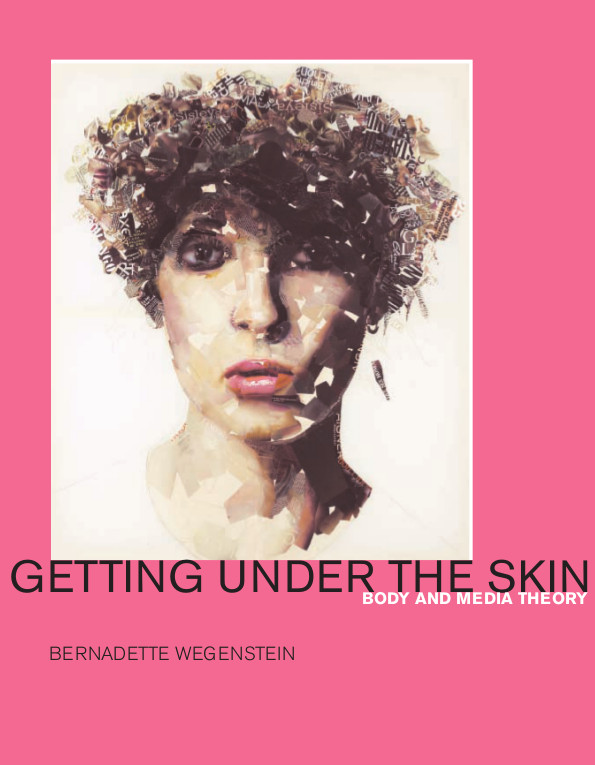Bernadette Wegenstein: Getting Under the Skin: The Body and Media Theory (2006)
Filed under book | Tags: · body, cyborg, phenomenology, posthumanism, psychoanalysis

The body as an object of critical study dominates disciplines across the humanities to such an extent that a new discipline has emerged: body criticism. In Getting Under the Skin, Bernadette Wegenstein traces contemporary body discourse in philosophy and cultural studies to its roots in twentieth-century thought—showing how psychoanalysis, phenomenology, cognitive science, and feminist theory contributed to a new body concept—and studies the millennial body in performance art, popular culture, new media arts, and architecture.
Wegenstein shows how the concept of bodily fragmentation has been in circulation since the sixteenth century’s investigation of anatomy. The history of the body-in-pieces, she argues, is a history of a struggling relationship between two concepts of the body—as fragmented and as holistic. Wegenstein shows that by the twentieth century these two apparently contradictory movements were integrated; both fragmentation and holism, she argues, are indispensable modes of imagining and configuring the body. The history of the body, therefore, is a history of mediation; but it was not until the turn of the twenty-first century and the digital revolution that the body was best able to show its mediality.
After examining key concepts in body criticism, Wegenstein looks at the body as “raw material” in twentieth-century performance art, medical techniques for visualizing the human body, and strategies in popular culture for “getting under the skin” with images of freely floating body parts. Her analysis of current trends in architecture and new media art demonstrates the deep connection of body criticism to media criticism. In this approach to body criticism, the body no longer stands in for something else—the medium has become the body.
Publisher MIT Press, 2006
ISBN 0262232472, 9780262232470
211 pages
PDF (updated on 2013-1-29)
Comment (0)Jan-Kyrre Berg Olsen, Evan Selinger, Søren Riis (eds.): New Waves in Philosophy of Technology (2009)
Filed under book | Tags: · ethics, hermeneutics, phenomenology, philosophy, philosophy of technology, posthumanism, technology

The volume advances research in the philosophy of technology by introducing contributors who have an acute sense of how to get beyond or reframe the epistemic, ontological and normative limitations that currently limit the fields of philosophy of technology and science and technology studies.
Publisher Palgrave Macmillan, 2009
New Waves in Philosophy series
ISBN 0230220002, 9780230220003
384 pages
PDF (updated on 2012-8-3)
Comment (0)Asher Seidel: Inhuman Thoughts: Philosophical Explorations of Posthumanity (2008)
Filed under book | Tags: · life, philosophy, posthumanism, transhumanism

Inhuman Thoughts is a philosophical exploration of the possibility of increasing the physiological and psychological capacities of humans to the point that they are no longer biologically, psychologically, or socially human. The movement is from the human through the trans-human, to the post-human. The tone is optimistic; Seidel argues that such an evolution would be of positive value on the whole.
Seidel’s initial argument supports the need for a comprehensive ethical theory, the success of which would parallel that of a large-scale scientific revolution, such as Newtonian mechanics. He elaborates the movement from the improved-but-still-human to the post-human, and philosophically examines speculated examples of post-human forms of life, including indefinitely extended life-span, parallel consciousness, altered perception, a-sociality, and a-sexuality.
Inhuman Thoughts is directed at those interested in philosophical questions on human nature and the best life given the possibilities of that nature. Seidel’s overall argument is that the most satisfactory answer to the latter question involves a transcendence of the present confines of human nature.
Publisher Lexington Books, 2008
ISBN 0739123289, 9780739123287
130 pages
PDF (updated on 2012-3-9)
Comment (1)
